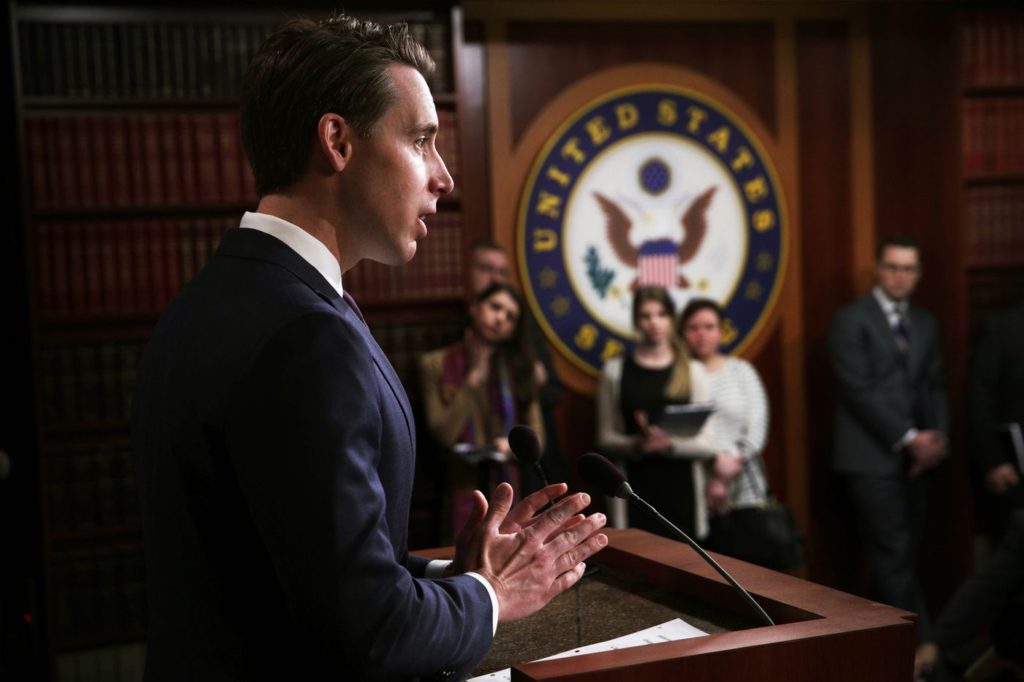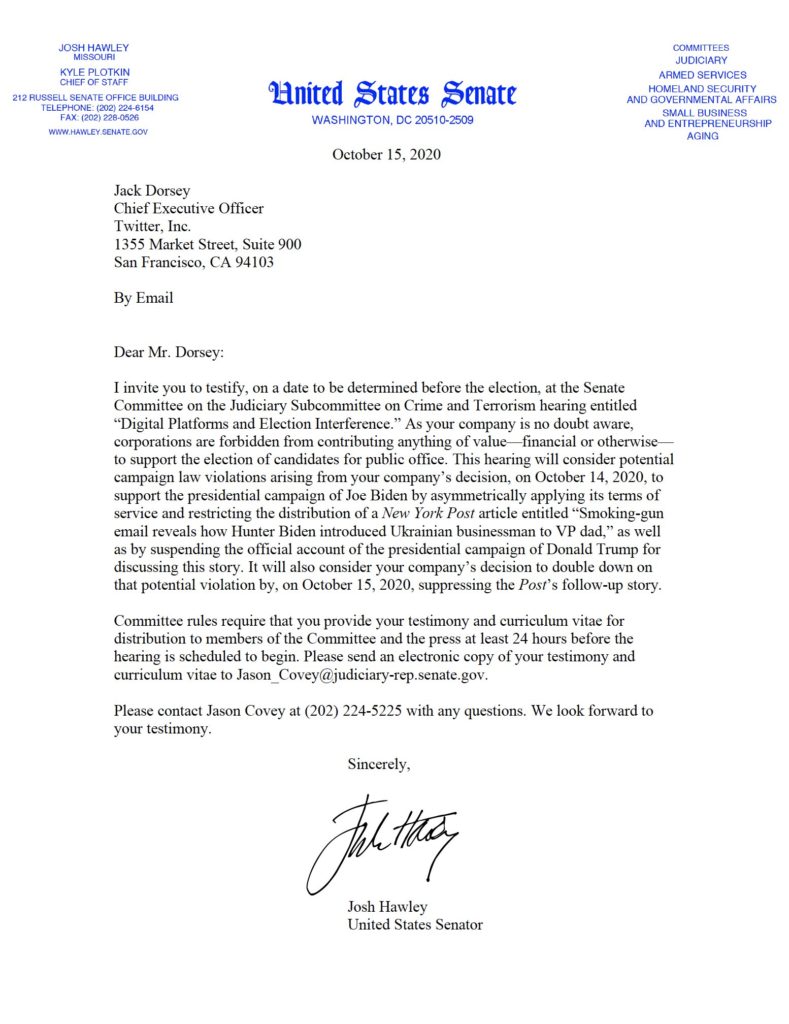
What is Section 230?
Section 230 is a Provision of the Communication Decency Act (CDA) of 1996, a piece of Internet law that shields tech companies from liability suits by treating them as a distributer of news and not publishers or speaker of the information.
The difference is that they cannot be held accountable for potential disinformation and mistruths distributed on their websites by third parties.
It states that: “No provider or user of an interactive computer service shall be treated as the publisher or speaker of any information provided by another information content provider” (47 U.S.C. § 230)
NY Post and Hunter Biden Story
On 14th of October, ‘New York Post’ published a story about Hunter Biden, son of Democratic presidential candidate and former Vice President, Joe Biden.
Revelations about series of Hunter’s private emails and materials from his personal laptop, which was supposedly left at a computer repair shop in Delaware but was never retrieved.
Hunter has been on a payroll from a Ukrainian energy company called Burisma, as a board member from 2014 to 2019.
One of these emails shows his correspondence with an advisor to the Board of Burisma, who was thanking Hunter for introducing them to his father, then-Vice president, and therefore allegedly trading and monetizing his father’s influence.
Campaign of Joe Biden did not deny the veracity of these emails. But it becomes more problematic since Biden has previously stated that he never discussed Burisma with his son and there has never been a conflict of interest.
However, if the NY Post article will be proved true, those emails would suggest otherwise.
This article was immediately suppressed by social media companies like Twitter and Facebook.
Also, the link to the article was disabled from being published and anyone who attempted to post and share it, was locked out of their account and saw their access limited.
New York Post’s twitter account has been completely suspended for days. White House press secretary, Kayleigh McEnany’s twitter account was also locked after she tried sharing the article.
A huge uproar ensued, mostly from the Conservatives lamenting about the censorship and what they perceived as brazen bias and attempted cover-up by giant tech companies to oppress the story of alleged corruption of the Bidens.
Republican Senator Josh Hawley of state of Missouri, member of House Judiciary Committee, has long been advocating for repeal of Section 230, and expecting more accountability from tech companies, but faced many frictions since it was never a popular opinion.
The free-market Conservatives have never been on board for breaking up the Big Tech.

Now the consensus among Republican representatives and also public’s opinion has shifted swiftly toward a different approach and Section 230 is becoming more and more controversial. Some are wondering if it will survive.
This law has long been the favorite of tech companies. The defense has always been that they can’t and should not be in charge of verifying the news that users and accounts distribute. They could evade responsibility by stating that they are not arbiters of the truth and should not play the rule of an umpire.
Now, however, in light of the indefensible actions of censorship, Twitter and Facebook have put themselves in the crossfire of bipartisan attempt to break up their media power.
Republicans saw this as evidence of the companies’ partisanship and their blatant disregard for First Amendment. Senator Ted Cruz of Texas, Congressman Ken Buck of Colorado, and Congress woman Cathy McMorris Rodgers of Washington state, are among the furious GOP representatives.
Senator Josh Hawley has formally requested Twitter‘s CEO Jack Dorsey and the CEO of Facebook, Mark Zuckerberg to appear before the Senate Judiciary Subcommittee in a coming hearing titled “Digital Platforms and Election Interference.”
Jack Dorsey later acknowledged his company’s mishandling of the situation and tweeted: “Our communication around our actions on the NY Post article was not great. And blocking URL sharing via tweet or DM with zero context as to why we’re blocking: unacceptable.”

DOJ vs. Google
A parallel legal challenge is under way by The United States Department of Justice. Attorney General William Barr had also blasted Tech companies in the past. In February of 2020, he said: “No longer are the tech companies the underdog upstarts. They have become titans.”
On 20th of October 2020, it was reported that an Antitrust lawsuit was filed by Department of Justice against Google. This complaint was filed in federal court in Washington, D.C., on Tuesday morning.
“Google is a monopolist in the general search services, search advertising, and general search text advertising markets. Google aggressively uses its monopoly positions, and the money that flows from them, to continuously foreclose rivals and protect its monopolies.”
“It is now the unchallenged gateway to the internet for billions of users world-wide. As a consequence, countless advertisers must pay a toll to Google’s search advertising and general search text advertising monopolies; American consumers are forced to accept Google’s policies, privacy practices, and use of personal data; and new companies with innovative business models cannot emerge from Google’s long shadow,” the initial DOJ complaint in the case states.
“For the sake of American consumers, advertisers, and all companies now reliant on the internet economy, the time has come to stop Google’s anticompetitive conduct and restore competition.”
Senator Josh Hawley welcomed this news: “Today’s lawsuit is the most important antitrust case in a generation. Google and its fellow Big Tech monopolists exercise unprecedented power… controlling everything from the news we read to the security of our most personal information.”
Maryam Rahmani
